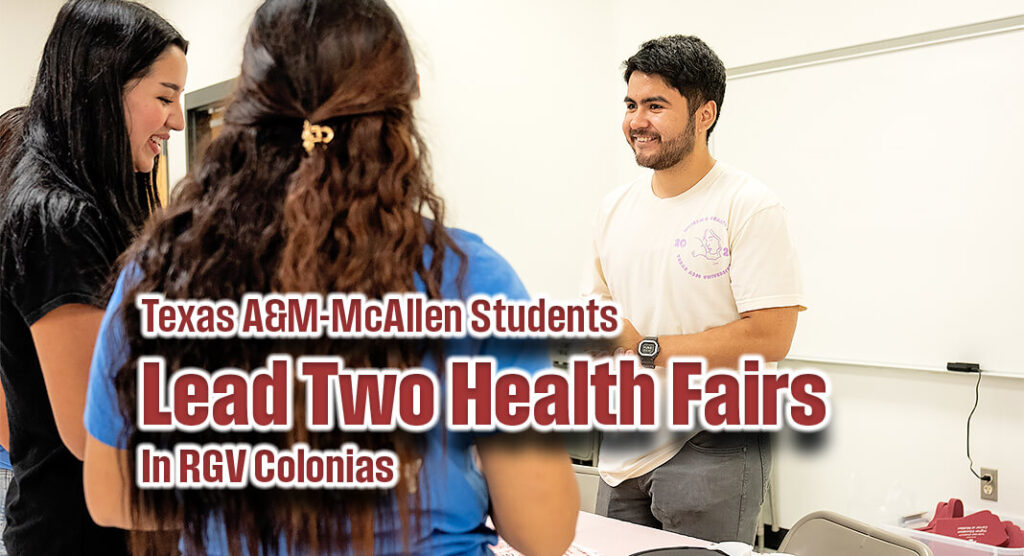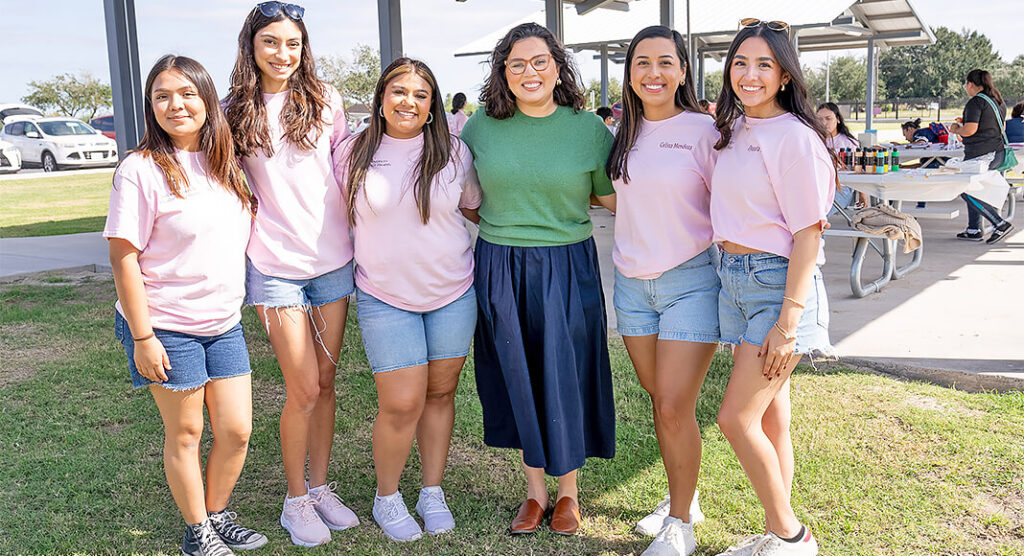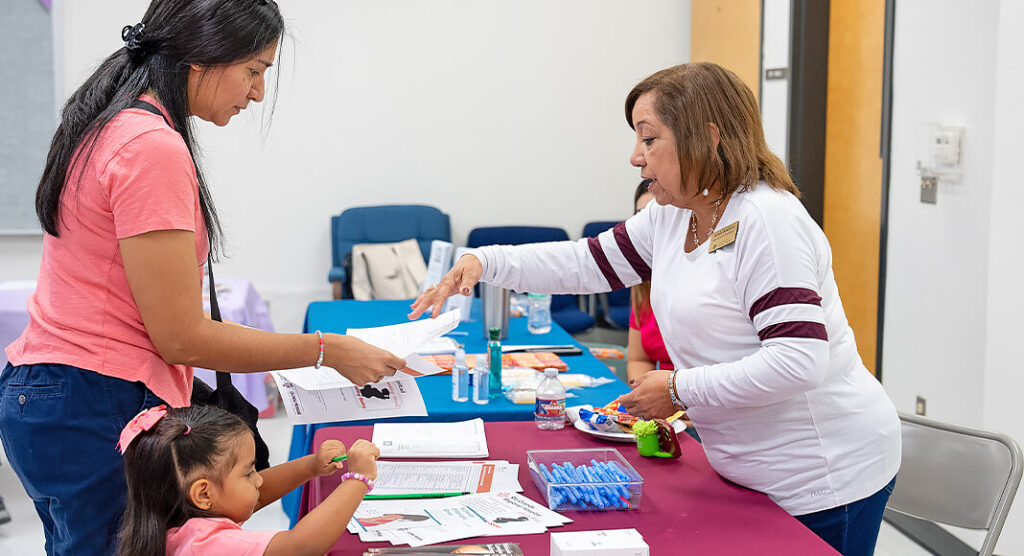
Texas Border Business
By Yahaira Hernandez
Students at the Texas A&M University Higher Education Center at McAllen (HECM) recently had the opportunity to collaborate with local health care organizations and the community for a class designed to give them experience addressing challenges in public health.
The students are in a junior-level course called Project Management in Public Health, which is part of the Bachelor of Science in Public Health degree offered through the Texas A&M University School of Public Health.

“The course incorporates service and community-based learning, allowing students to integrate course objectives with real-world application. They are tasked with developing, implementing and managing a public health project with the assistance of their community stakeholders,” said instructional assistant professor Dr. Krystal Flores-Chavez. “This field-based, mutually beneficial learning approach gives students direct experience addressing community-identified issues while assisting underserved communities.”
The students had the opportunity to work with the Texas A&M Colonias Program and the House of Love and Justice, an organization dedicated to transforming colonias along the U.S.-Mexico border, to implement a community-focused project addressing a public health issue within a colonia in the Rio Grande Valley.
Flores-Chavez was awarded $5,000 from the Texas A&M Health Transformational Teaching Grant in the summer of 2024 semester to use toward the fall course. She split the amount, giving two teams of students a budget of $2,500 each to fund their respective projects.

One group of students decided to host an event called “Colorful Connections” in early November. It was a free mental health awareness event held at a public park in Edinburg, Texas. Its goal was to provide families from nearby colonias mental health information and resources and an opportunity to bond through arts and crafts activities. Several local organizations, including Texas A&M University Colonias Program, House of Love and Justice, Texas A&M University Health Services, Edinburg Consolidated Independent School District and the Behavioral Health Solutions of South Texas, provided educational materials to attendees. Celina Mendoza ‘27, one of Flores-Chavez’s students, assisted her team with organizing and implementing the mental health event.
“We developed the concept of our event after learning the types of activities the community wished to see,” Mendoza said. “We targeted mental health as the topic because it is an important but frequently overlooked component of general health, particularly in low-income households where resources may be scarce. Improving mental health is essential to ending poverty cycles and living happier, more fulfilled lives. On top of that, it is imperative to combat the stigma associated with mental health in some communities, particularly underprivileged groups.”
A week later, the second group of students led a women’s health fair in San Juan, Texas, to provide women and their families access to free health screenings and educational presentations. Students also included a health-themed game of loteria (bingo) that was developed by Denise Martinez, a doctoral student at the School of Public Health. Participating organizations included the Texas A&M University Colonias Program, House of Love and Justice, Nuestra Clinica Del Valle, Healthy Futures of Texas, Hidalgo County Health and Human Services, Access Esperanza Clinics, South Texas Health Systems Behavioral and Mujeres Unidas/Women Together. Tabir Rodriguez ’27 assisted his team with planning the women’s health fair. “Our goal was to spark a conversation between women and health care providers to help provide answers to questions they may not know to ask and seek health screenings to identify and address any health concerns,” Rodriguez said.
The course is rigorous because of the amount of time and effort needed to complete the projects. It provides students the unique opportunity to collaborate with local health organizations and practice critical communication skills with stakeholders.
Emily Gonzalez ‘27 from the Colorful Connections team reflected on the demanding but rewarding experience. “Planning the project and coordinating everything the day of the event was a little stressful. It wasn’t always easy to obtain everything we needed, but it was well worth every bit of it once we were able to see the joy and smiles from families at the event,” Gonzalez said. “I enjoyed collaborating with my team and believe all our ideas, motives and skills were essential to being successful in accomplishing our goals for the project.”
Mendoza adds, “The project involved collaboration, diverse perspectives and overcoming challenges, such as aligning schedules and ensuring the project was culturally sensitive and accessible. Much like the real world, our team learned to balance tasks effectively, utilize each member’s strengths, and foster a supportive environment to achieve a common goal.”
Flores-Chavez is dedicated to developing a strong public health workforce that can skillfully address health challenges and create lasting and sustainable change in South Texas. “The overall goal of the course is for students to gain the necessary skills for future career opportunities. Skills learned through the course are essential for those who wish to work within community-based organizations,” Flores-Chavez said.















